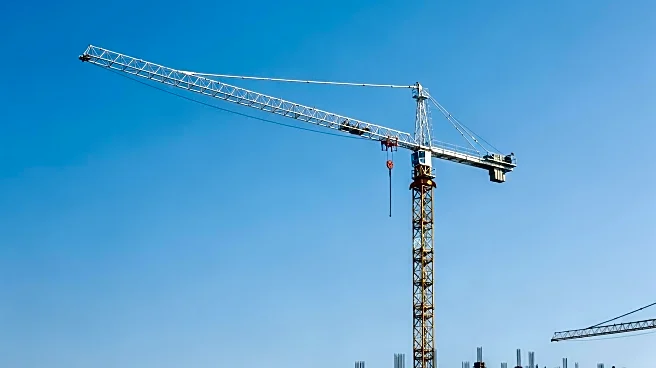What's Happening?
Tutor Perini, a major construction firm, has announced a record backlog of $21.6 billion, marking a 54% increase from the previous year. This surge is attributed to substantial federal, state, and local infrastructure funding. Despite President Trump's
threats to cut funding for major infrastructure projects, the company remains confident that its projects are secure. CEO Gary Smalley confirmed that ongoing projects, including the California High-Speed Rail and the Manhattan Tunnel as part of Amtrak's Gateway Program, are progressing without disruption. The firm reported a third-quarter revenue of $1.42 billion, a 31% increase from the same period in 2024, and profits of $3.63 million, a significant turnaround from a loss of $100.86 million in the previous year.
Why It's Important?
The record backlog and increased revenue highlight the robust demand for infrastructure development in the U.S., driven by significant government investment. This development is crucial for the construction industry, providing stability and growth opportunities amid economic uncertainties. Tutor Perini's ability to secure and maintain large-scale projects despite potential funding threats underscores the resilience and importance of infrastructure spending. The firm's success reflects broader economic trends, where infrastructure investment is seen as a key driver for economic recovery and growth, benefiting construction companies and related industries.
What's Next?
Tutor Perini anticipates over $25 billion in bidding opportunities in the next 12 to 18 months, including major projects like the Sepulveda Transit Corridor and Penn Station Transformation. While the firm expects its backlog to stabilize in the short term, the continued influx of infrastructure funding suggests sustained growth potential. The company's strategic positioning in high-value projects could lead to further expansion and profitability. Stakeholders, including investors and industry partners, will be closely monitoring the firm's ability to capitalize on these opportunities and navigate potential policy changes.
Beyond the Headlines
The surge in infrastructure spending and Tutor Perini's record backlog may have broader implications for U.S. economic policy and urban development. As infrastructure projects advance, they could lead to improved transportation networks, enhanced public services, and increased job creation. However, the reliance on government funding also highlights the need for stable policy environments to ensure long-term project viability. The construction industry's growth may also prompt discussions on sustainable building practices and the environmental impact of large-scale developments.















